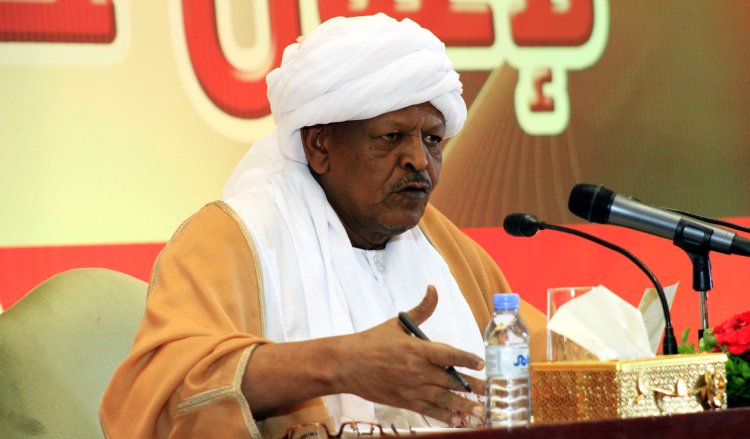Sudan announces awaited national dialogue government

May 11, 2017 (KHARTOUM) – Sudan’s First vice President and Prime Minister Bakri Hassan Saleh announced Thursday the long time awaited National Consensus Government including 31 ministers and 44 secretaries of state.
However, the large coalition government led by the National Congress Party of President Omer al-Bashir witnessed few changes as two presidential aides left the government: Galal al-Dugair Youssef and Tijani al-Sisi.
Among the new faces in the national dialogue government include are given the ministries of interior, petroleum, finance and investment.
In parallel, President Omer al-Bashir issued a presidential decree reinstating in their positions Vice-President Hasabo Abdel Rahman, and four presidential assistants including Mohamed al-Hassan al-Mirghani, Ibrahim Mahmoud Hamid, Musa Mohamed Ahmed and Abdel Rahman Sadiq al-Mahdi.
The president also appointed 65 members of parliament representing the political groups that participate in the national dialogue. They will participate in the elaboration of a new constitution in line with the resolutions of the National Document endorsed during the political process.
In a press conference held at the Sudanese presidency, the Prime Minister Bakri Hassan Saleh read the names of the government cabinet members, stressing they have been appointed in consultation between the President and the Prime Minister.
The presidential decree appointed Lt Gen. Hamid Manan Mohamed al-Mirghani, minister of interior, Lt Gen.Mohamed Osman al-Rikabi, minister of finance and economic planning, Abdel Rahman Osman Abdel Rahman minister of oil and Gas, Abu Bakr Hamed Abdel-Rahim minister of justice.
Mubarak al-Fadil, the leader of a National Umma Party (NUP) splinter faction, has been appointed the minister of investment, while the former presidential candidate of the Democratic Unionist Party (DUP) Hatim Alsir Ali minister of trade.
The Popular Congress Party (PCP) has two ministers in the new government: Idris Suleiman Youssef minister of international cooperation and Musa Mohamed Ahmed Karama minister of industry.
The prime minister said that the number of new cabinet ministers remains the same as the previous government at 31 ministers. He pointed they increased the number of state ministers to 44 posts to accommodate all the participants in the dialogue process.
He stressed that the ruling National Congress Party (NCP) in the previous governments had 67% of ministers and 64% of state ministers, but now in the new cabinet, it gave up 12 portfolios “six ministers and 6 state ministers,” while the DUP has given up a minister of state.
He said the formation of the new government was delayed due to the extensive consultations with the national dialogue forces, adding they received some 1500 nominees for the ministerial positions.
The government was expected to be announced last February.
Saleh explained that the military who is appointed minister of finance, Lt Gen.Mohamed Osman al-Rikabi, worked in this ministry before to join the army.
The majority of other ministers kept their portfolios, such as Ibrahim Ghandour of foreign affairs, Awad Ibn Ouf of defence, information minister Ahmed Balal, and Bahr Abu Garda of health.
The new cabinet is tasked with the implementation of the dialogue’s recommendations and the adoption of a new constitution.
The holdout political opposition and armed groups refuse to join the process before to stop the war and create a conducive environment for an inclusive dialogue.
(ST)
